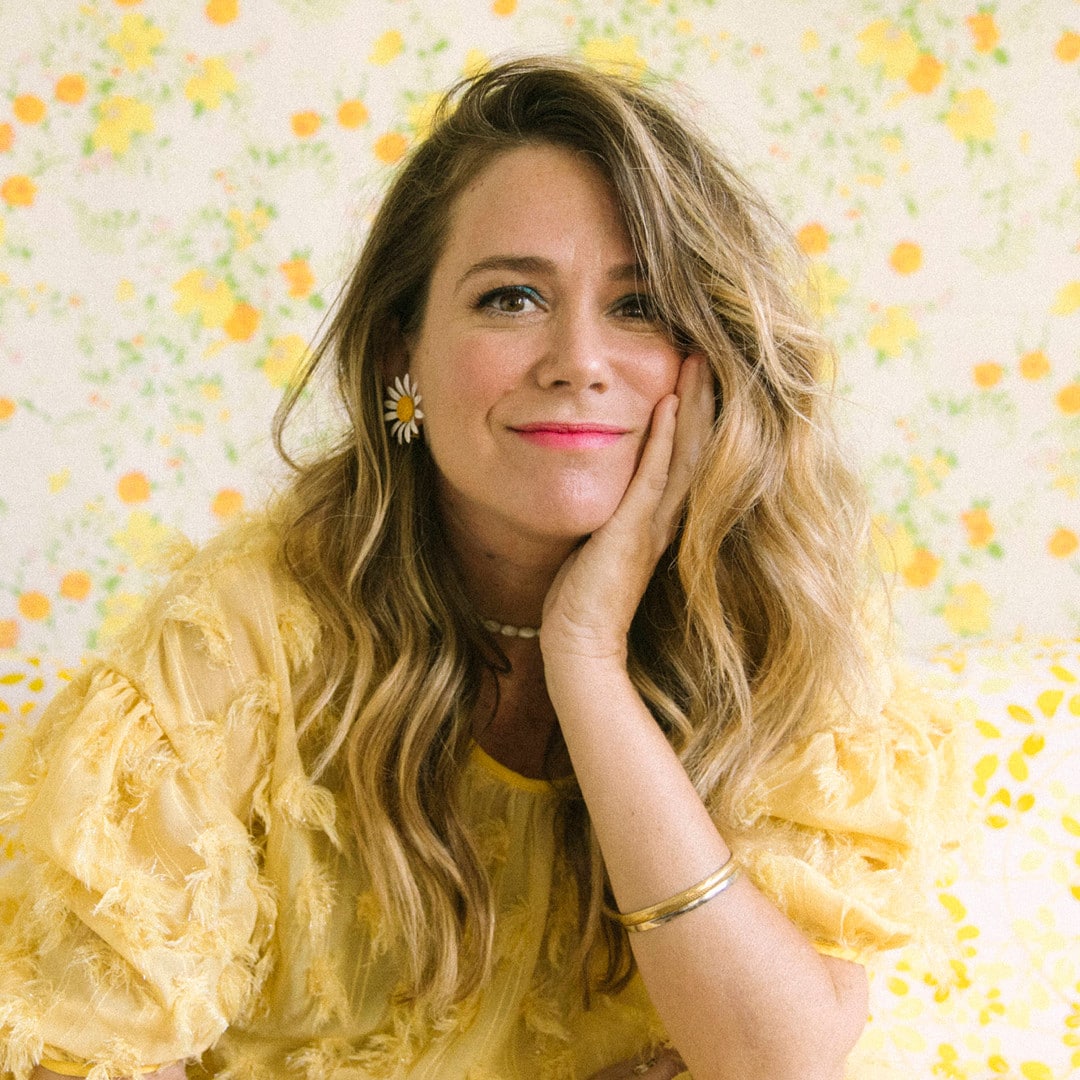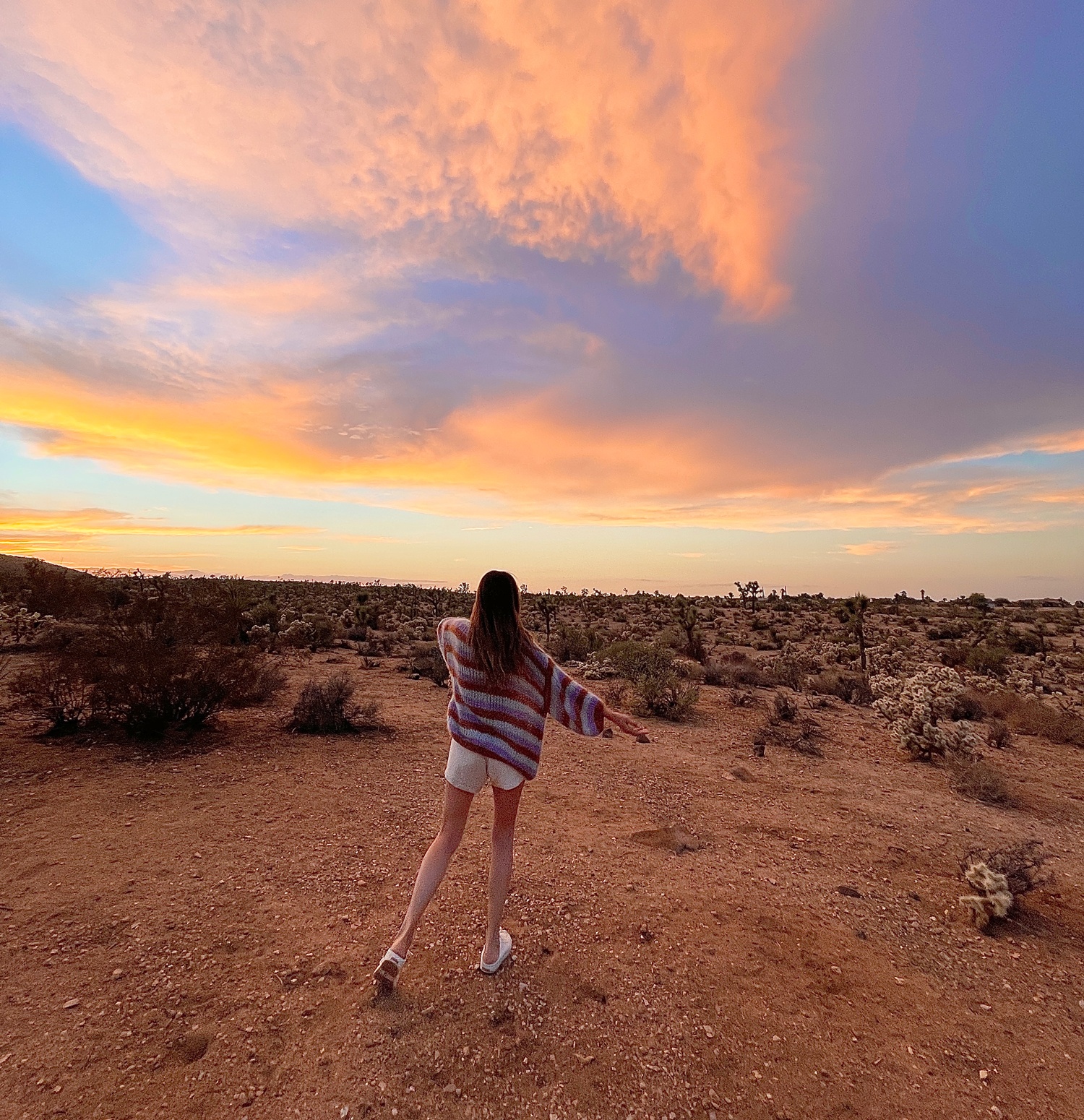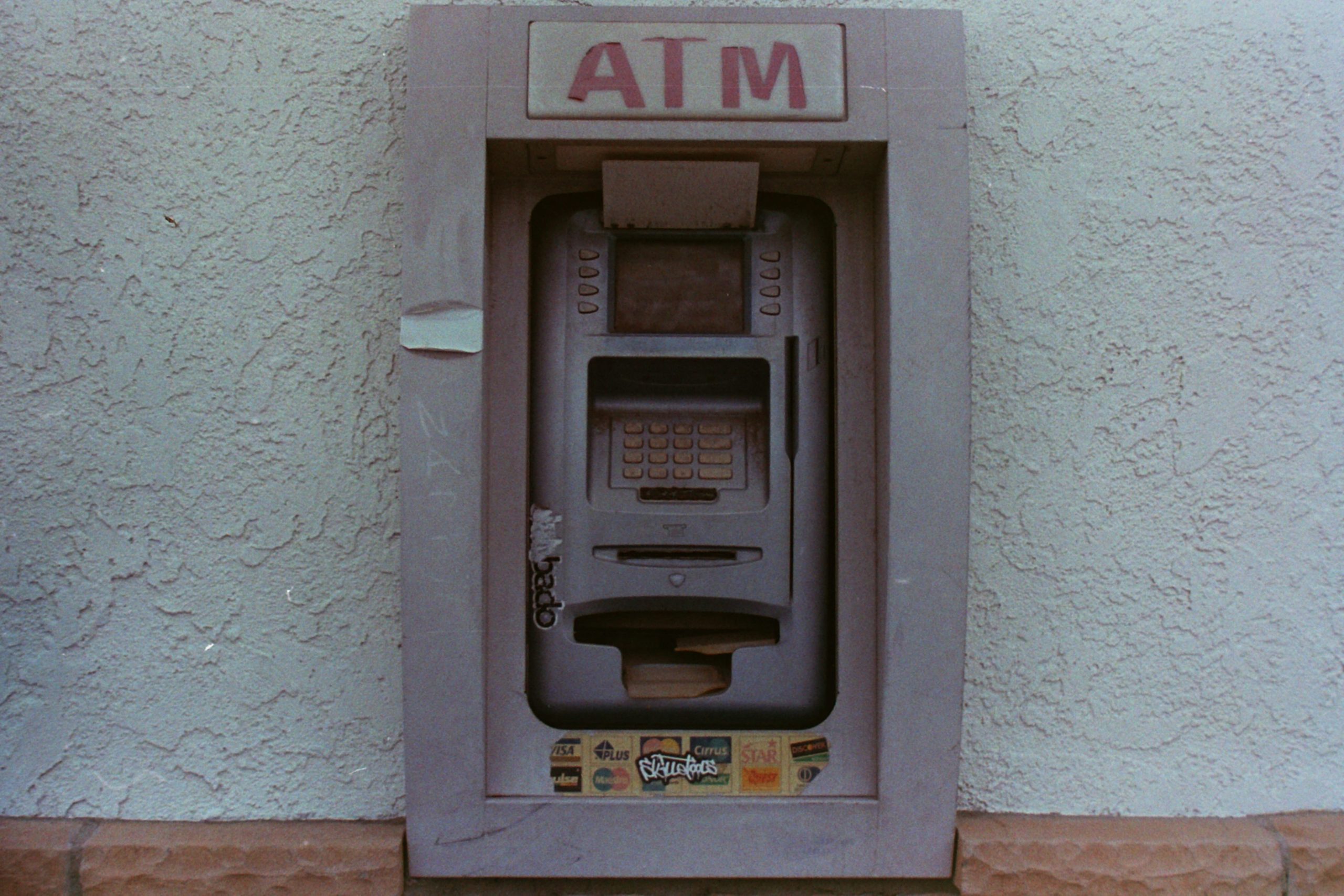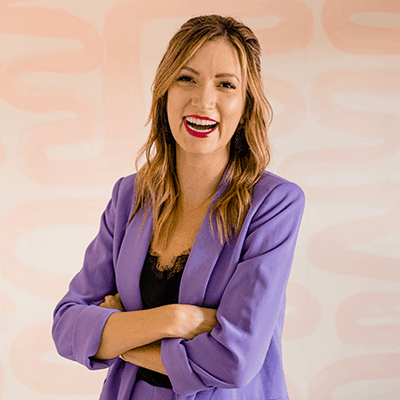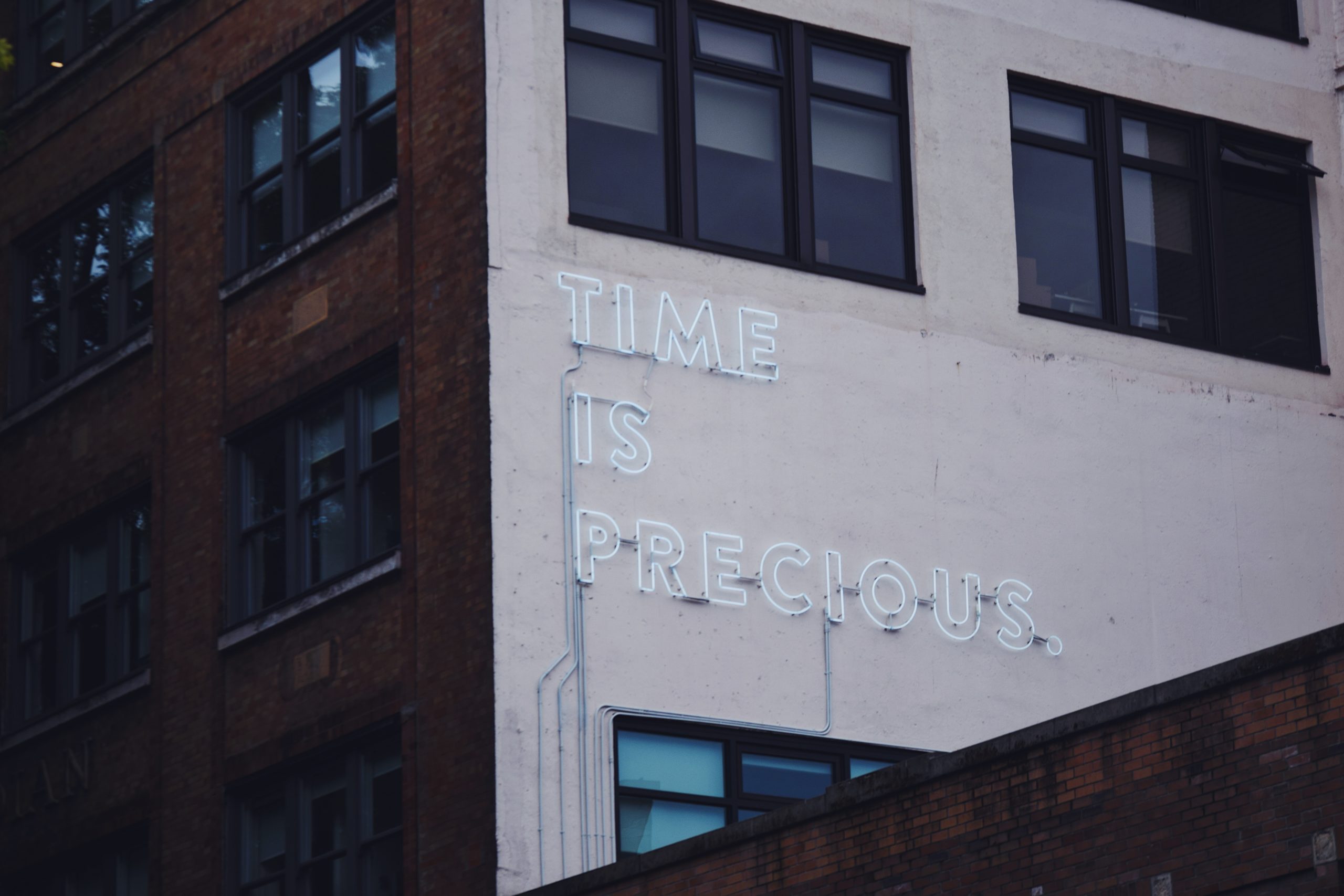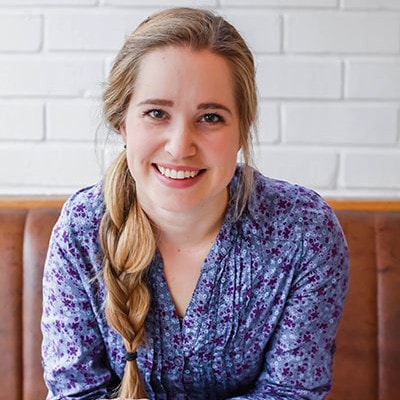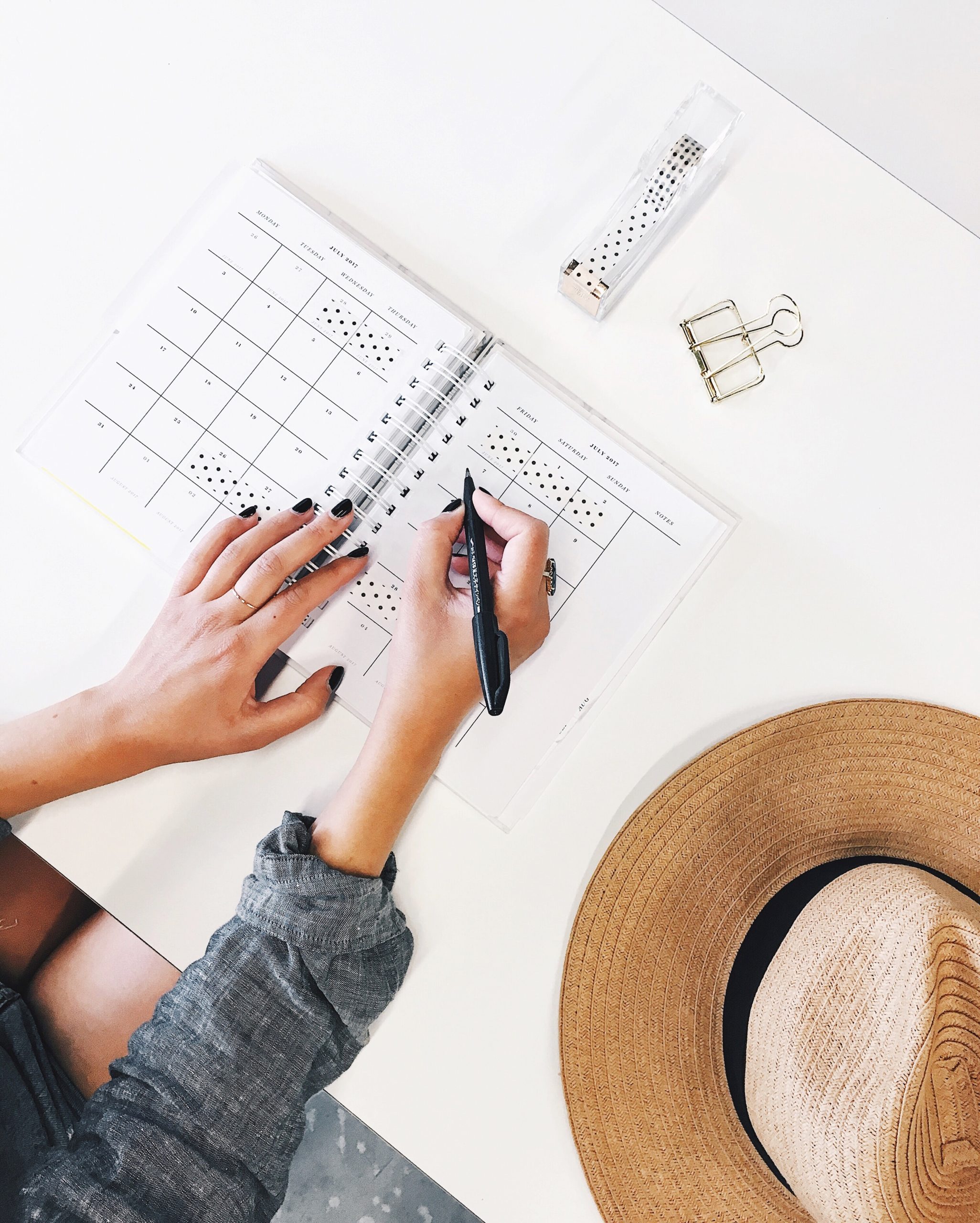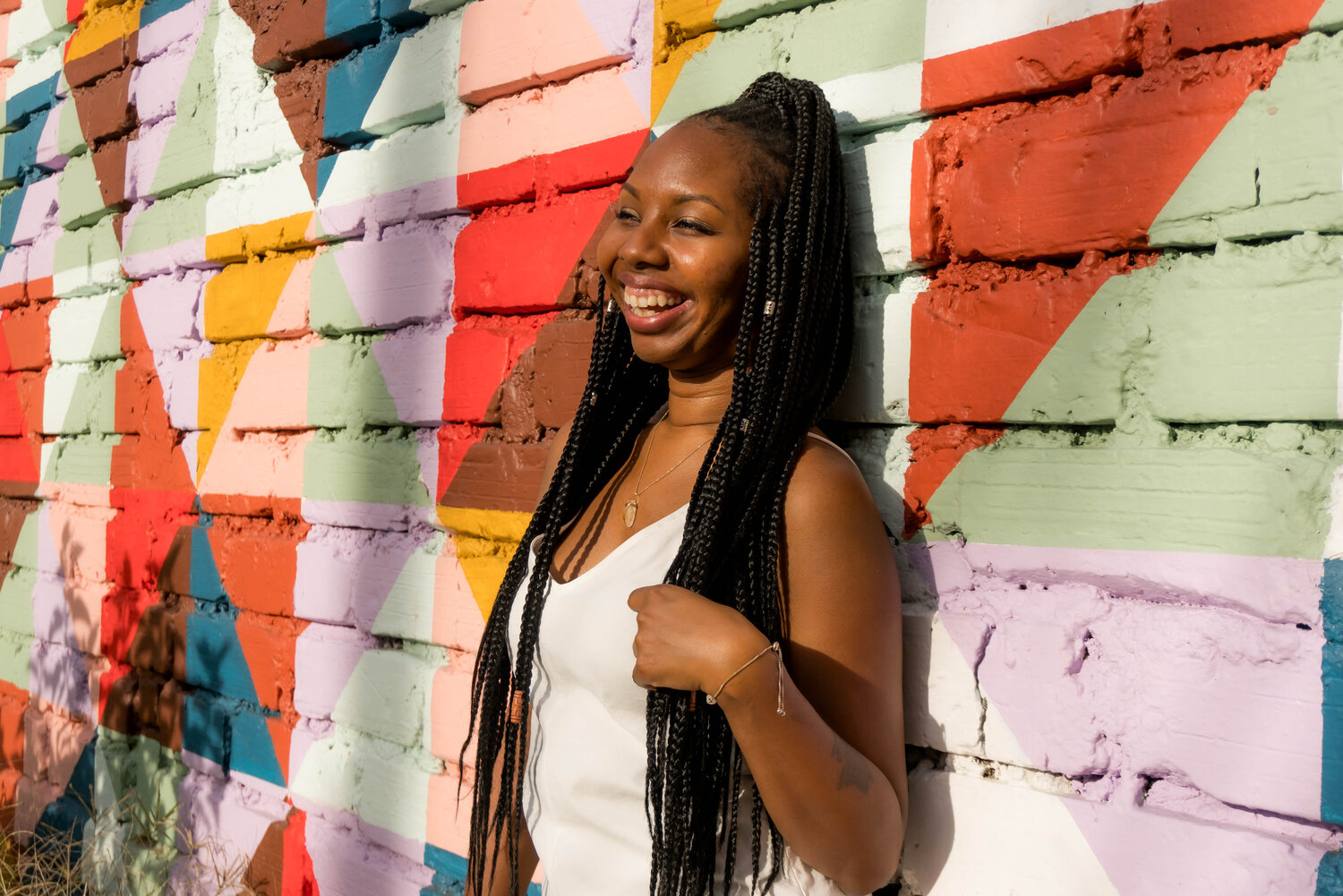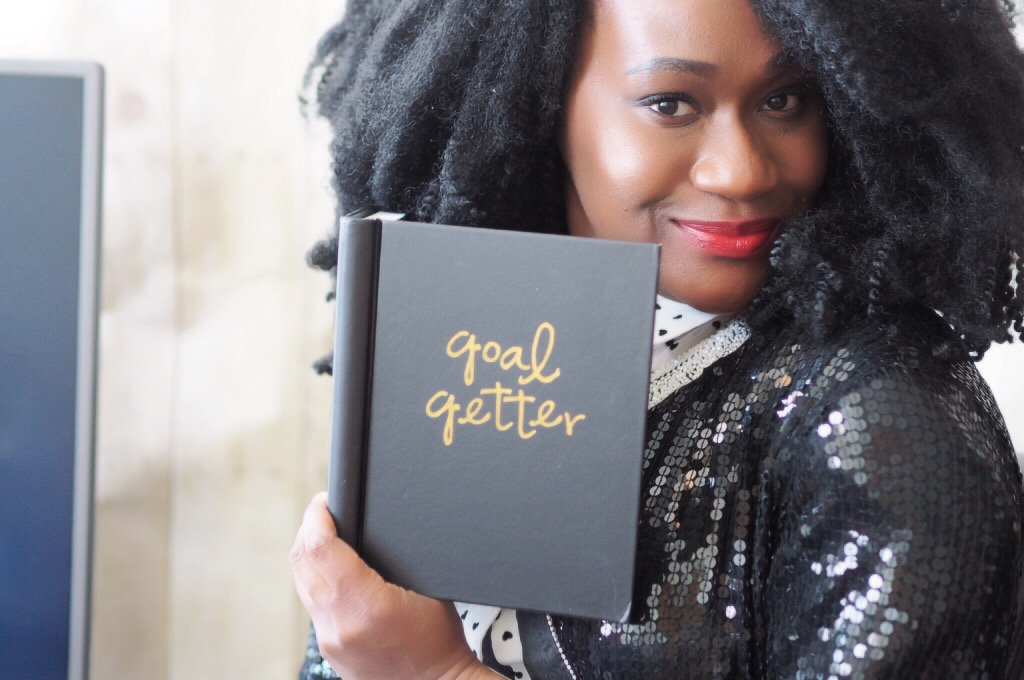Tune In to the Episode: Apple Podcasts | Spotify | Stitcher
At some point or another, we are all faced with choices and making decisions that can change the trajectory of literally everything in our lives.
For Jen Gotch, one of those things was her marriage and her decision to let it end. What happened as a result of that decision has been nothing short of incredible to watch unfold, as Jen has shared her journey so authentically and openly along the way.
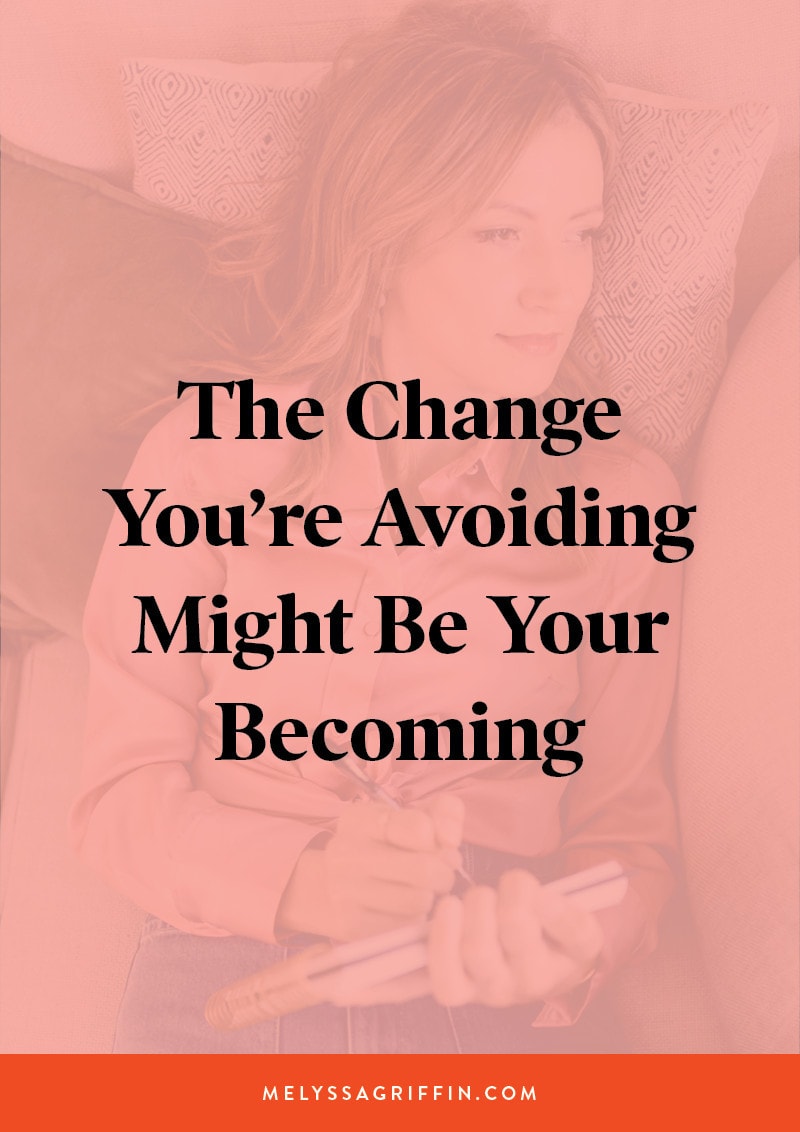
Jen is the founder and Chief Creative Officer of the multimillion-dollar brand, ban.do. What started as a small hair accessories company has transformed into a movement that encourages joy and normalizes mental health. She’s also the author of the NYT Best-Selling memoir, The Upside of Being Down, which details her upbringing and mental health journey while growing a successful company.
Jen has got to be one of the wisest (and most hilarious) humans I know. The way she shares her story so honestly and unabashedly with the world has opened up the conversation on mental health in a way that leaves shame at the door and makes room for so much self-forgiveness.
I loved this conversation because we talk about our own first-hand experiences with breaking through limiting beliefs and patterns, how to stop demanding perfection from ourselves, and the importance of listening to our own intuition (instead of everyone else) about what’s right for us, and what’s not.
Jen, to me, fully embodies what it means to be Limitless because she is always willing to grow beyond the current version of herself, but she does so with compassion.
If you know there’s more out there for your life, but you’re scared to claim it…
If you’re going through something difficult right now, and you need inspiration…
Or if you’re ready to rip off the band-aid and truly live a Limitless Life™…
This episode is for you. Let’s dig in!
Listen to the episode below:
This episode discusses topics like…
- Why she decided to start sharing her struggles with her audience, and what happened as a result
- That trauma (big and small) exists for everyone, and how Jen has decided to start acknowledging the trauma in her life
- What the process of forgiving herself and connecting with who she is authentically has looked like
- The dynamics of Jen’s relationship with her mother, and the way that it has shaped who she is today
- Why she considers getting divorced as her new beginning
- Whether or not “safety” exists in the world today
- Jen’s best tips to gain back your inner voice, and why she truly beliefs you can create your own path in life – no matter what age you are
- How she now measures true success
By the way, I created an entirely free, 5-day at-home digital retreat called Limitless Entrepreneur. It’s all about creating a new income stream in less than a week, as well as reprogramming the beliefs that are keeping you from a no-limits business and life. Click the image below to sign up, it’s free!
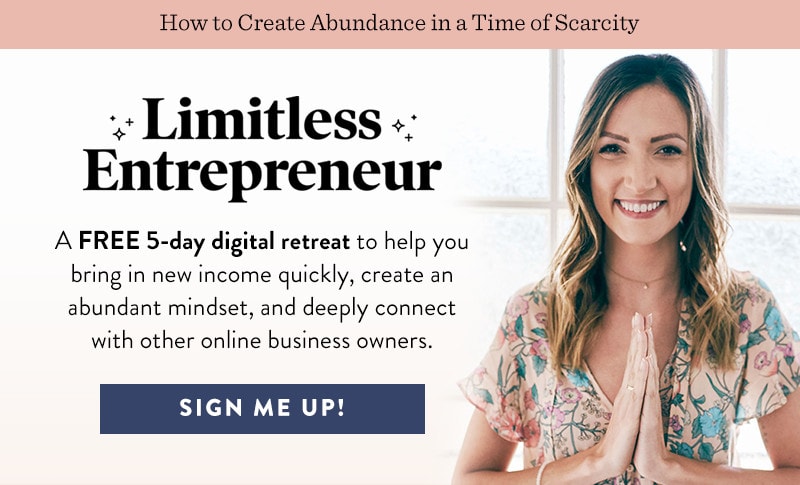
Links from the episode:
- Jen’s Book
- Jen’s Website
- Jen on Instagram
- ban.do’s Website
- ban.do on Instagram
- Register for the free, at-home Limitless Entrepreneur retreat here!
- Follow me (Melyssa Griffin) on Instagram for honest conversations about business, mindset, and my life.
- Follow the Limitless Life™ƒ Podcast on Instagram for new episode releases and wisdom on how to live a life with no limits.
How to subscribe + review:
Want to be the first to know when new episodes are released?
Also, podcast reviews are pretty darn important to the iTunes algorithm and the more reviews we receive, the more likely we’ll be able to get this podcast and message in front of more people. I’d be extremely grateful if you left a review right here letting me know your favorite part of this episode.
Share on social?
Did this episode help you expand what’s possible for your life or business? Do you think your social media followers may learn something, too? I’d be forever grateful if you shared it on social media. 🙂 If you do, tag @melyssa_griffin and @limitlesslifepodcast so I can repost you! Woohoo!
I’d love to hear your thoughts on this episode. What changes have you been avoiding making in your life, even though you know they would serve your highest self? What’s stopping you?
Thank you SO much for being here, sweet friend. I’m honored to walk this journey with you. See you in the next episode!
xoxo
Melyssa
Melyssa: Hey Limitless Fam!
Now can I be honest with you? I think this is one of my personal favorite interview. On this podcast Yes, like ever. It’s because I’ve been following today’s guest Jen gosh for probably about five years. So I knew a lot about her story going into this conversation and was just really excited to meet her and chat through everything. Now I’ve watched as her company bando went from mostly unknown to totally exploding. I follow along as Jen went through a challenging divorce. And in the past couple years, I have seen Jen God truly step into her power, something within her has just shifted in the best way possible. And in this interview, I wanted to find out exactly how she did it. What was it that led to her becoming her joy, her passion, her leadership. So like I mentioned, Jen is the founder and chief creative officer of the multi million dollar brand, bando. And what started as a small hair accessories company actually has transformed into this movement that encourages joy. normalizes mental health. She’s also the author of The New York Times best selling memoir, the upside of being down which details her upbringing and her mental health journey, which she’s so open about while growing a successful company. Now, what I loved about this conversation is that Jen is both hilarious. And why so wise, there’s just a special place in my heart for people who can share real raw, deep truths about life while making you laugh. I just love combining the depth with the light heartedness. And in this interview, we talk about things like how to start working through the patterns and limiting beliefs you may have adopted as a child, how to honor your path, even if it looks different than the norm, and how a terrifying life change actually altered Jen’s life for the better. Now if you know there is more out there for your life, but you’re scared to claim it. If you’re going through something difficult right now and you need inspiration. To keep going, or if you’re ready to rip off the band aid and truly live a limitless life™. This episode is for you. Let’s dig in.
Hey, Jen, welcome to the show.
Jen: Hi, thank you for having me.
Melyssa:; I’ve actually you’re one of those people that I’ve been following for probably like five years since the early stages of my business. Yeah, and I’ve just really seen the evolution that you’ve had I’ve been following you since before you announced your divorce and then watched you go through felt like a very public journey of mental health and healing from divorce and just really becoming who now I feel like is the biggest brightest version of Jen gosh, that I’ve ever seen. And she’s been an absolute privilege to watch that evolution from the outside looking in. So I just curious
Jen: I’m going to cry on your podcast!
Melyssa: Wouldn’t be the first time! So
I feel like you are such a test. to somebody who’s taken some of their hardest moments and turned it into the greatest breakthroughs and had been willing to share that with people online. So I would love to know, first of all, why did you decide to start sharing your struggles with your audience?
Jen: I would say it probably stems from a boundaries issue.
It certainly wasn’t a strategic move, you know, strangely sharing, like the really personal stuff and some of the things that people may carry shame about that I just don’t for whatever reason, like, that’s just sort of how I’m built. You know, bringing that to a larger platform is something that happened over time and I think it really was based on the trust I had with my community like there was never really push back in any way. Like it was always really welcomed. And so I do very well with encouragement. I told the guys who did my audio book, I was like, you know, I narrated it and I was like, I’m really scared. But if you just Tell me I’m doing a good job and that you love it, you’ll see me get even better and better. So I think it’s like a similar thing. And then obviously, once I really got into that and sort of found my groove, the response was so overwhelming and the sharing that people were doing and just saying how much it was helping them. And I mean, part of my purposes, at least, I feel is to help people. It just was like a no brainer to see like how far I could go with that.
Melyssa: Yeah, were there ever moments where you were sharing something that felt really personal and you were like, Is this too much? Should I not share it?
Jen: I don’t think so. I think I have, strangely enough, I do think that that I have like a gauge and a filter. It doesn’t seem like that. But you know, when it comes to other people, I’m very sensitive about that. I tend to attract a lot of people that are extremely private, and like my divorce was one of those experiences like, I mean, we were going through that for the better part of a year before I said anything, and I remember saying to Andrew like, this is feeling really weird for me to not talk about, but I’m trying to be sensitive. So like, if I, he read the post, I was like, are you okay? If I do that? So I think that’s probably the only time where I get like a like, Is this okay, but for me, I pretty much am comfortable sharing all of it.
Melyssa: Yeah, we’ll see. We’ll see what happens. I love that about you. Yeah. And I feel like it’s just part of your identity, to be really honest about who you are in any capacity, whether it’s like hilarious part of you, or the really honest, vulnerable part of you, you just show up really authentically.
Jen: Yeah, strange, but I agree.
Melyssa: There’s a part in your book, I actually want to read a quote because you talked about your relationship with your parents, and maybe this will inform some of how you ended up that way of just being yes about yourself. But you said you have to understand where you come from to truly understand who you are. And only then can you start figuring out who you want to be. And I love that sentiment, especially that last part, only then can you figure out who you want to be. Because then it’s like, you don’t have to just be the person who stays stuck in the patterns that your family passed down to you, you really get a choice in who you are. So I’d love to hear more about that, from your perspective of what does that get to look like for us and for anyone listening who maybe grew up with an upbringing that made them feel small or made them just feel misunderstood, and now wants to figure out who they are beneath the conditioning. Do you have any thoughts on that?
Jen: So many,
Melyssa: You wrote a whole book about it?
Jen: Yeah, yeah, exactly. There’s certainly any one of the topics in my book could have gone on for days. Thankfully, I had a great editor. You know, talk therapy certainly helped me a lot to unearth a lot of a lot of how my upbringing affected me and why maybe have certain traits To me that I would like to work through and sort of connect the dots, which was very helpful for me like I’m a very, I’m not generally like a linear person, as you can probably see. But when it comes to like self awareness and self improvement, like I like to have a course of action and like a true understanding of things. So that helped me a lot. And so certainly being able to talk to a professional who understands how your upbringing and even what you’ve inherited, can affect who you are, is incredibly helpful. Not everyone has access to that. There’s certainly a lot of reading that you can do on your own. I think writing about your experiences like you don’t have to publish it and memoir form but like journaling about, you know, whatever is coming up for you in that day in regards to that is incredibly helpful and essentially my book was in large part a journey. All, you know, in in writing it, I recognize, wow, there was even so much that I thought I had resolved through therapy, that in revisiting these stories of my childhood in my relationship with my parents and who they actually are as people, I started to see them and the situation differently. Like I realized there was an underneath that I didn’t know. It was like, there was a basement under the floor that I did not know existed. So, you know, I think there’s like continual introspection that can be done. During the course of writing the book, I was introduced to the concept of re parenting, which I’m not great at explaining, you’re nodding your head. So maybe you sort of you may be able to explain it better than I can.
Melyssa: I just, like giving yourself what you needed from your parents.
Jen: Totally. And so that’s exactly right. And you know, when people talk about inner child and taking care of your inner child like that’s all connected and You know, at first it sounded a little like, okay, I don’t need to be repented because I had great parents, it’s just you know, the thing that we have to understand is that there’s residual, even if you have the most amazing parents like there are mistakes that are made or there are behaviors that our parents had that because we are who we are affected us in a way, right was not even their intention. I mean, that’s a lot of the issues I had with my mom is like she was coming from a good place. I wasn’t set up as a person to receive love in that particular way. So I think it’s like first identifying there’s work to be done regardless of if I had a major trauma or if I seemingly had no trauma, and, and then going through and like really getting in touch with what it is in your deepest parts that need to be re addressed. And there’s a lot of there’s meditations you can do. There’s I’m sort of in the middle of that now because I think it’s very very tied to my lack of self worth. And I have not gotten to the bottom of it yet, but I have found grandparenting to be a really interesting way of dealing with
Melyssa: Hmm, I really appreciate that suggestion. And I also love the way that you’re talking about it, where it’s basically that everyone has trauma. And that’s mine too, because I think a lot of people assume that trauma is like, you were abused as a child. And that’s the truth. Like, it has to be this big thing. But really, it could be like, your parent was a little critical about you getting a B, or, ya know, they wanted you to clean the house in a certain way and you wanted to do it a different way. Like that can be just you because you’re just not being seen for who you are. So I appreciate your outlook on it, because I think it informs a lot of what people experience and the work that we get to do to heal a lot of those things too. Totally.
Jen: I have only recently adopted that philosophy and it was because I went to I tried EMDR and you know, that’s the was created for people with PTSD. And when you know, so you identify a trauma that you work backwards from in the process of this particular type of therapy. And I was like, that’s the thing. I don’t have trauma. Like, I didn’t witness a murder, I wasn’t abused. And she was the first person that was like, there’s big tea and there’s little tea, but it’s still it still does the same thing in your brain doesn’t there’s maybe more unpacking to do with the big tea. But sometimes the big tea is like it’s their glaring, kind of easier to deal with at times, the little T’s and it could be hundreds of little T’s. Sometimes it’s harder, you know, you don’t even know what you’re working backwards from. So I do think that has been really helpful for me to understand that I don’t have to be angry about the little t ‘s, but they’re, they’re there. I have to acknowledge that.
Melyssa: Hmm, right. I like that. I don’t want to be angry about it, but I can acknowledge them. Yeah, it almost seems like that The first step of healing trauma is being like pissed off about it. Yeah, like, why did this happen to me?
Jen: Yeah. Would you say that’s normal, too? I mean, I’ve certainly gone through that, but you can’t heal and have that attitude. So,
Melyssa: right. My coach will tell me that when I feel charged emotion about something, it’s just showing that I haven’t healed that part of me fully. There’s something under it. Yes, a great. I like what you were saying to that. It’s almost like you said, you went to the basement of the trauma, the, the layers, do you think there’s like a way to ever get to the bottom bottom? Or do you think it’s just a lifelong thing?
Jen: No. Well, I think for many, it’s a lifelong thing. I think for many, it’s a lifetime after lifetime thing. You know, I mean, I think ultimately, that’s the idea to get to the bottom of it, resolve it and find peace and joy, but I absolutely think it can be done. I feel very close. I mean, I could be surprised and I Like I was a couple years ago, just to find that there may be a basement under the basement, but I absolutely think it’s true. And I think as a society right now, even now more than ever, you were really set up to do that sort of introspection and have access to the type of information and therapies that allow for those pathways to be carved. So yeah, I hope so. I mean, it’s a big part of what I’m after. Me too.
Melyssa: It was anything else over the years when you were going through this evolution of yourself that helped you to reconnect with that, like truly authentic version of Jen to be who I know.
Jen: Yeah. You know, that’s a good question. So much of what I do is just so however I’m feeling in the day or the moment that there certainly had to been things happening that are allowing me to feel more comfortable. I mean, I guess part of it has just been like acceptance, and like forgiving my self and taking responsibility for things too, you know, which, you know, obviously, the divorce was a huge catalyst for a lot of that change for many reasons, but I think being able to look at not that I did not feel at fault. I mean, it certainly was there was equal, you know, responsibility in that but like to really start to see where I had gone wrong or, you know, acted in a way I shouldn’t have and to acknowledge it and sort of forgive myself for it and not and I think like, that’s the heart I still struggle with that where I you know, I’m very black or white about things which I’m really trying to find my way to the middle, so I’m either right or wrong. And if I’ve decided that something I’ve done is wrong, and I can’t forgive myself for it. Then I’m walking around with shame. You know, and when you feel that way, it’s really hard. It’s hard not to be small, you know, when you feel ashamed. So I think I’m not there fully. But I’ve, I’ve come a long way, I realized how much of that I was holding that was really completely unnecessary and was just just there because of my black and white nature, you know, that I couldn’t be like, Well, yeah, that that was bad. You don’t have to pay for it for the rest of your life, you know, right. Right. So
Melyssa: is there anything when you are feeling that way? And you know that you need to forgive yourself, acknowledge it, forgive yourself and that that’s really the key. Is there anything that helps you get to that point of true self forgiveness?
Jen: You know, I would say generally speaking, understanding that sort of that the idea of perfection and like, what I was putting myself up against, and the over the years, especially the last few Yours like really working to, like, consistently like, debunk that, like it’s just not a real thing because we don’t even know it when we get there. You get to where you think it is. And then you’re like, no, it actually must be higher. You know, and I had so many like indications of that in my life. And I think like when I was even doing the podcast, and maybe you had this experience early on, you know, you’re so vulnerable. And I just kept getting mad at myself, because it wasn’t the perfect podcast, like, I just didn’t have the perfect voice, and I would, and then I couldn’t even really identify what that would look like. And I thought, why aspire to that, you know, and so then I in in doing that, I could immediately forgive myself for not being the best, you know, and so I think so I don’t know that there’s something specific but generally speaking, being able to see where I’m not making a mistake, I’m just telling myself I am because I’m not hitting an imaginary goal that doesn’t even exist. sort of helped me be like, you know, it’s just like, it’s easier to forgive little things, right? When you feel like you’re epically failing, or I’ve done something incredibly wrong because it’s either right or wrong, makes it a little bit tougher to forgive yourself. I think when you’re just like, yeah, it’s okay. You know, it’s okay. And the last thing I’ll say about that is I think that’s where it connects to the re parenting and the inner child because I think when you look at yourself and know that, like some of that, not being able to forgive your own failures is because your parents had a standard of perfection for you. And you, you know, I felt like I failed my mom specifically a lot. And I really wasn’t but I carried that with me and so to be able to kind of think of me as like, little me, like, how would I be if I was five and I did that. It’s okay, you know, that’s all right. Just, you know, try better next time or like you’re doing great. You don’t have This is good enough, you know, working that narrative in has been helpful. Again, these are none of these things, these are very hard things to achieve. This is not something I do all the time. I mean, if you follow me on Instagram three days ago, I was in like a self worth downward spiral. So there has to be a lot of practice, but those are certainly the things that have helped me the most.
Melyssa: I appreciate you saying that. I feel like there can be this misconception that like you work on it, and it’s gone forever and you don’t have to worry about it again. And it’s like it’s probably going to be there for me forever whole life and just some capacity. Yeah, and it’s an it’s really like an honoring of when it comes up instead of Oh, my God, the thing is happening again and I suck and here’s why. Totally,
Jen: that’s no so good to articulate that it’s, that’s a huge gift you can give to yourself and again, something I struggle with a lot where it’s like, I’m just mad Are you you know, it’s hard to break any pattern. So it’s much easier to like, slide back until like, simplifying something in that way so,
Melyssa: right right and I like what you were saying about the self forgiveness being almost coming about because we’re forcing this unrealistic expectation of what we think perfection is which is totally subjective and it’s not like a like you said it’s a met an imaginary goal. Yeah. So what I have to be, yeah, have the right voice and the right clothes and the right personality to be perfect, quote, unquote. And then the forgiveness comes when you realize like, oh, who put that out there? Maybe it was my eyes. Maybe it was me. Maybe it was like, collection of everybody but there is it real? Yeah. Instagram.
Jen: Totally that culprits.
Melyssa: There are a lot of cool. Fred’s was something that I actually am personally curious about for you. So you are just a hilarious person. You have a great sense of humor. Also. Hashtag Dr. Jamie My God, that guy, you love to dance anywhere in everywhere also hashtag trash dance. And you’re a C level executive at a multi million dollar brand who talks openly about her mental health journey? So I’m curious Did you ever feel like you needed to water down the quirky off be parts of who you are and in order to fit into a more acceptable box?
Jen: He No, no. And I wouldn’t say that that’s like 100% a testament to me and my bravery, although I’m quite contrary and and sort of have that rebellious teenager inside of me that as soon as someone says like, don’t do that, that’s weird. I’m like mom’s gonna do it 10 times better. You know, like, I certainly have that. But I also have just, you know, by the grace of the universe been surrounded by people that do not deter that behavior, like especially professionally, like, certainly at a different company, with different people in leadership positions. They could have operated from a lot Fear or embarrassment, you know, I mean, I think they understand the inherent value to the company and to the brand for, for me to sort of, you know, be so open and in my weirdness or you know what, whatever it is or what I’m talking about, but I’ve really never been shamed for it. So and I think that’s a you, I’ve come to understand that that’s a unique experience. So I’m very lucky. And again, just another reason like a note to myself that like, it’s probably part of why I’m here. Because there aren’t these obstacles that so many people face and I tend to think big obstacles are there to tell you like detour. This is not the road, and I just haven’t had those.
Melyssa: So it’s so interesting. It’s almost like, because you were so full on in yourself, who you are. People just ran with it. Yeah. Cool. She’s her She’s genuine.
Jen: Yeah, I don’t see. I don’t know that I wouldn’t be like, Hey, would you mind calming down?
Other side of it? But yeah, again, just the people I’m surrounded with. I mean, unless they’re having secret meetings about how they’re going to sedate me or something, which I thought if they’re so good, if that’s the case, man, they should be spies.
Melyss: Yeah. Was it always that way for you? Like, I know that a few minutes ago, you mentioned how your mom and you had a unique dynamic growing up. Mm hmm. is where those pieces of your personality not as honored growing up, or do you feel like it was the same men too?
Jen: I mean, I think actually, that’s when a lot of that was solidified. You know, my mom is quite unique as a person and is relentless in her pursuit of being herself, you know, and so, how that looks and feels is certainly different than me but it was modeled for me by her where society what societies dictate What fashions dictating, she observes, you know, and I think she’s really grown into that I think she was much more shy as like, you know, in her 20s when I was young, but I think even unconsciously, there was permission within that and and there were times that she encouraged me like, do what you want, you know, I mean, at the same time, then there probably be times where she was insecure and was like, be more like everybody else. And so I’m a little bit of both actually. And then I think the my, the interesting part is like, the other part of our relationship is like me wanting to do the opposite of everything. Like I just want to whatever she says, I’m just like, No, I just, it’s like, even now at 48 like show my what I always feel I can control it now but I want to be like, I’m gonna do the opposite. And, and so I think like those things for him to you know, is a big part. I mean, obviously, the humor comes from although my mom’s really funny comes from my dad. I think some of my nature of like being different, was certainly encouraged by my mom. Hmm.
Melyssa: That’s really interesting. It’s almost, yeah, it’s just so fascinating to look back at how our parents parented us. And even the things that they thought they were doing make us a certain way can instill that, like, I’m going to do it my own way. I’m going to do the opposite of whatever you’re saying. Totally. so fascinating.
Jen: Yeah. Agreed. Totally agreed. Very fascinating.
Melyssa: Well, in your book, you talk about your divorce, which kind of seemed like the turning point for you. I don’t know how you feel about that. But you said this. In your book, you said the divorce, although a radical life change that some might view as a failure was actually the first step in a process that would take me to a far better place. It was without a doubt the ending I needed in order to find a new beginning. I just got chills reading. But yeah, I just I really appreciate that sentiment, because I think so often in our lives, we’re walking down a path that has expired, whether it’s a relationship City a business job. But we keep it because we’re afraid of the loss or the failure associated with not having it anymore. So for you, what did that look like? What is your divorce teach you about moving through difficult decisions?
Jen: You know, I think the other thing is the fear of the unknown to so I certainly was confronted by all my fears, like, you know, I think there’s something in us that thinks, if we play it safe if we’re complacent, we can avoid being confronted by the things that are scaring us the most. And what I found with that particular situation, along with many other big and small life experiences is that you’re just postponing it like they will come for you is, you know, especially if they’re there to radically affect you, you know, and I think sometimes those The things we’re the most scared of, because we must, on some level, no. And I think that that was the same for me. And really, and and I talked about the circumstances of the divorce in the book, but, you know, generally speaking, I have a huge belief that that was the universal energy just like extracting me, because I refused to do it on my own. And I, you know, I think when you’re, again, you know, the same thing as a detour, I think, like when you’re going the wrong way, or leaning into the wrong things, you’ll get a nudge, you know, and most of us are, just do not pay attention to the nudge, and then you get a push, and then you’re like, that’s inconvenient. And you’re still very set in this thing, you know, then you get pushed over, and you’re like, get back up and just be like, that’s weird, you know, and then it’s like, you get, like, run over. And you’re like, man, let me Let’s see what’s happening here. And that’s happening. To me, in very pivotal places in my life and and so, again, I think I just recognized immediately upon us deciding that, yes, we actually do need to get a divorce, that this was going to be an opportunity for me that this that’s why I say it’s not the end, it ended something very meaningful to me, but it was the thing blocking me from the rest of my life, you know, and I did know that and I was gonna live my whole life and die knowing that and not have done anything about it. And I just got lucky, very lucky that the world was like, nope, you’re doing it.
So I don’t take that for granted.
Melyssa: Hey, limitless listener. We’ll get back to the show in just a moment. But I wanted to take 20 seconds to invite you to the free at home digital retreat that I created just for you. It’s called limitless entrepreneur and It’s all about helping you to create an abundant, fearless mindset. All growing your online business. You want to join just visit limitless entrepreneur retreat.com to register. It’s totally free. That’s limitless entrepreneur retreat.com All right, friend back to the show. I
really like the way that you You said it was the thing that was blocking me from the rest of my life. Yeah. Beautifully put to and I think probably for everyone listening, including myself, there are things big or small, that lead to change in our lives, to allow us to be who we really are meant to be. Yes, having either the courage to make the tough choices or wait until you get run over
Jen: or be forced. Now I get it and so that the first nudge I’m like, I’m I’m gonna start looking at this because I don’t want to be run over many more times. In my life, but you know, I think part of that too, just like a helpful hint, is understanding the concept of impermanence, which is some another thing that we’re really not taught about, you know that there is impermanence. It just is always there. We can’t control it. Nothing is forever. Nothing is forever. And we want things to stay that way. We’re, I mean, we’re living in it right now. Everything has been knocked over. And that is the natural order of things. Like you’re always going to have that. And so I think, for me, really going from someone who’s like, quote, unquote, control freak because it was safer to keep the things as they are, and moving ahead in the way that I want them to. To switch that to be like I’m open. Good or bad. I’m ready. Just changes that immediately. And it’s like, the faster you can get there, the better.
Melyssa: Right? Do you think it’s like a trust, trusting in whatever unfolds?
Jen: Totally, which is all we have, you know, I mean, it’s it, faith, trust, whatever you want to call it. Like, it actually is true. I’m a believer in magic and you know, all that I won’t get into because it gets weird. clothes
or whatever, you know, but I do really well, with personal experience with evidence, like I’m sort of like, can be a total mystic, but man, there’s nothing better for me than like solid evidence that something is true. And the weird thing with trust and faith on that level is like you kind of have to do it without evidence and just trust that there will be but what I’ll say is I have solid that’ll go on book too, but I have solid evidence that’s real. So it’s a trustful. It’s just a trust fall. You know? That’s all it is. And again, these concepts are so simple. It’s just, we’re just taught other things, you know, not good or bad. It’s just, we’re just we’re just taught other things.
Melyssa: Right, right. Almost like, if that thing changes, it’s a failure, or you shouldn’t want something different. You should stay where you are.
Jen; Yeah, or safety. Like Yeah, the idea that safety even exists.
So stay safe by not doing those things. You know, I mean, divorce, specifically. I think for a lot of people. It’s just safer it we know it was safer for me. So my situation wasn’t with children or financial but like the idea of like, going back out and dating again was just that felt very unsafe to me and it was enough to keep me in something that was not working. You No. And so I think it’s like also just understanding that safety is sort of an illusion. That’s not to say we’re in danger all the time. But it, it’s like, it goes back to like, permanence and security. And you know, just knowing ultimately everything is going to happen the way it should. It may not look or feel great. But, you know, we don’t have control over that. We just don’t.
Melyssa: Right. I’m really appreciate all of that, that you just said and totally agree with you. And I’m curious, like all the changes that you’ve had in your life over the past few years of really just stepping even more into who you are and sharing your message with the world writing a New York Times bestselling book that’s helped so many people. Do you think this version of you was possible? If you hadn’t gotten a divorce or do you think the divorce needed to happen as the turning point?
Jen: Yeah, Oh, absolutely. No, I wasn’t going anywhere. I wasn’t going anywhere because I you know, by the end, I was numbing myself. myself all the time or distracting myself or, you know, seemingly being incredibly productive at work, but really just it was just a avoidance mechanism. And, I mean, I was doing all the things that would lead you to not evolve, you know, but I had these weird markers, that’s good things were happening. So it was confusing, but again, I think like, there is an inner knowing we just don’t usually access it because it’s very quiet. But, you know, I was aware of it. I just wasn’t willing to look at it. So I don’t believe that there’s any way but I also don’t think without the marriage, I’d be able to have this too. So it’s not like oh, I regret doing that. I’m so glad I did that. You know, I don’t really carry any regret because I like the timing of my life. But I think had it continued. I would have stopped there as far as like personal evolution,
Melyssa: right. Just such an inspiring Take on it. Because I think for anyone who’s experiencing that and thinking like it’s going to be the worst thing. Yeah, you’re on that crazy decision. It actually can turn into your becoming of who you really are. Of course,
Jen: I mean, I think getting out of anything toxic could be a friendship, a job or whatever can lead to that. It doesn’t have to, you know, you don’t have to make a giant decision. Sometimes we are forced to make really big decisions. But sometimes it is, like we were saying early on, you know, could just be something small. Right?
Melyssa: Yeah. So thinking about like, what is that? My one of my friends says, What? You’re not changing, you’re choosing? Mm hmm. There’s something in your life that you’re not making a choice on, you’re still making a choice to not make a choice.
Jen: Totally. Totally. Yeah, you just have to pay attention. I mean, that’s the other thing. That’s the other gift of divorce is that I all of a sudden was back to being alone, all the time, and not lonely, but then had the opportunity to just focus on me when you’re in a relationship. You’re focusing on your partner on your problems. I mean, obviously, it’s not problems all the time. But like, those are the things that occupy a lot of brain space. And so you’re not even really clear on what your wants or needs or anything, it’s hard to get that kind of clarity when you’re like so in meshed like that, and and again, that’s not i’m not generalizing all marriages, a lot of them are healthy and there’s boundaries and but I think sometimes when something isn’t working, and you’re in it, you get caught up and all this other stuff and you lose yourself. And like without a true lens on yourself, like it’s just really hard to address those things.
Melyssa: Right. How do you have any thoughts for people who do feel that way and feel like they’ve lost the clarity on their inner voice in a relationship or, or something like that, and they’re trying to find it, but they don’t know how.
Jen: Yeah, I mean, any way to practice Just mindfulness. You know, I mean, everyone’s always like meditate, which is kind of a pain in the ass. But it is one of the things, you know, it really is because so much of clarity is about quieting your mind. And, you know, that’s the only time you really can access your intuition or your inner knowing. And so you have to, I mean, for me, like, I’m just like driving, you know, I just go for a drive and all of a sudden, because you’re just thinking about driving, you’re able to get these other things come through. So I think it’s, I think whatever it is that works for you, like, think about when you’ve got a great idea, like to think about your last grade idea that sort of came out of nowhere and think about what you’re doing, and maybe just start there, you know? Yeah, but then eventually you could get, I think having a daily practice, which again, I’m not a person that can do anything daily. But ultimately, I’ve taught a daily practice of even like 10 minutes of just sitting quietly allows you to access that much quicker.
Melyssa: Mm hmm. Just something to reconnect with yourself. Yeah, I like that. Well, there’s a paragraph in your book. I want to read it it okay. There’s like a paragraph. So give me a sec, but I really like it. I want to talk about it. But you say, sometimes I find myself on panels or doing Q and A’s in front of big crowds. And inevitably, some young audience member will ask how I got to where I am today, or what they should be doing now to have a career like mine and 10 years? My answer is always that there is no one way. I didn’t plan to start a company or sell a company or be a chief creative officer. I didn’t study business and my resume certainly didn’t reflect anything that would indicate that I was qualified or prepared to be a business person. And yet I did it. I am proof that a career path doesn’t have to be linear, that you don’t have to decide at 10 2030 or even 40 what your exact path is going to be. And you may have many iterations of a career throughout your life. I’m also proof that if you know the job you want, and you can’t find it, you can create it Potential names reading my
Jen: mind. Did I right? That sounds cool.
Yeah, it is pretty cool.
I tend to forget everything I say or do after it’s done because it’s very like just I don’t know where it’s coming from. So,
Melyssa: yeah, like a moment of Yeah. During the truth, right. Yeah. Well, what I, what really stuck out to me about that quote was that you were saying there’s no one way and there’s no, there’s no right age either. And so much of society actually says the opposite. Like you got a right path. You have to do it by a certain age. And that’s sort of the box that we force ourselves into. Yeah, I actually would just love to hear your thoughts on that topic.
Jen: Yeah, I mean, I encapsulated it pretty well in that paragraph, but I think you know, with so much of what we see about professions and success, as to look, we’re really still told this One thing more than we’re told any other thing, you know, and I mean, as far as I know, you’re still choosing your major in college. And that is supposed to indicate what you’re going to be doing professionally. And I mean, who even are you at? Like 19? You know, so So I think the thing that’s not in that paragraph that that really helped me is Mike jobs leading up to bando were very random. I mean, I was struggling with my mental health, I was sort of just bouncing around. And a lot of times I was being pulled in by whatever my passion, whatever I was most interested in at that moment. When I looked back, I was like, Oh, my gosh, these all like, collectively gave me a unique skill set to do this other thing that I didn’t even know existed, you know, and so I think it just goes back to a lot of the, you know, themes of our conversation. It’s just Like, sometimes you just don’t know. And that’s okay. And by following your gut, you’re going to end up somewhere great. You just are. And sometimes you do know. And that’s also great. Like a lot of people do have that linear path. And it is amazing. And they do have success, and they got what they wanted. But that’s not everyone, you know. And so I think, maybe doing less questioning and comparing, and doing more staying true to what you really think you should be doing, regardless of what society says you should be doing is really important. You know, and I think that again, these were things I was doing that I had no idea how or why I was doing it. It’s only in retrospect that I can look at it and see how it all worked out. And that’s why I’m trying to share it to maybe save people from having to wait until they’re middle age to be like wait that I was doing great the whole time.
Melyssa: So like, like going on the path but not judging the path, like just, yeah. Trusting, trusting that it’s leading you where you you’re meant to go. Even if you don’t know what that looks like right now.
Jen: Yeah, and nothing in life, especially this should be lived in absolute. So it’s not that you trusted every day or that you feel connected every day. I mean, the part about being human is that we’re human, and we have emotions, and they’re not consistent. So I think it’s just, to me, like, I’ve honed the skill where I know where when I’m connected to the truth, and I know what I’m not and I know what I’m getting off course, like, mentally. So it sort of helps me identify when I’m going in the right direction. And I think like just those are the types of skills to hon really use hone those you can do anything you want. So true.
Melyssa: Yeah. I liked what you said too, about. If you follow your gut, you’re gonna end up somewhere great. Yeah. I for people listening I say this all the time on the podcast, but just keep moving in the direction of what feels good. Like, it feels good. You enjoy it, keep doing it. Like you don’t know, I had a similar experience as you have like, I had no idea where anything was leading until I got there. And yeah. And then it starts to make sense. Yeah. Because I was doing things I liked. And they were leading me where I needed to go.
Jen: Yeah. So you have to pay attention to what you’re doing when you’re not thinking about what you should be doing. Because there’s a lot of information in that. And then I think really understanding the true difference between like your mind, your generated ideas and your intuition or your God or your truth and like the same way that I was saying, think of where you were when something just floated in. Think about how it felt in your body. Did your hands tingle? Did you get like a pain in your stomach like it’s different for everyone, but like starting to identify when that information is coming in what it feels like? Because our minds are very powerful, and our minds help us get where we need to go to. But the big answers are in the ones that are not, you’re not really thinking about and they feel different, like, again, after paying attention to that for so long, I’m better at being like, Oh, it’s that one. You know, instead of feeling like each thought has to lead, I have to follow that. Now I have to follow that, you know, I mean, you You do have to be strategic about it.
Melyssa: Right, right. I like that advice, because it’s, our minds, like you said, can go down the spiral. They know the evidence for why you shouldn’t do something. But then if we’re listening to our body and the pings that we feel somewhere in our body, and we can recognize what those are trying to tell us and it almost feels more like this spiritual or body wisdom that’s been calling us. Yeah. Yeah, like that. Well, you are amazing, and I’m just grateful that I’ve gotten to to chat with you watching your path unfold has meant a lot to me personally and has inspired me and just seeing who you’ve become and who you’re becoming is really a gift to so many people. So, thanks. I have one last question that I want, of course, everybody. And it’s because the podcast is called limitless life™. What’s one piece of advice that you give to our listeners about how to live a life with
no limits?
Jen: I feel like so much of what we said is, is indicative of that. Here’s what I will say. It’s hard. I don’t know that I’m there. You know, I think my head is up against the ceiling, or some imaginary ceiling a lot. What I will say and so in the same way as perfection, it’s like, we don’t know how high is high. You know, we don’t know what our limits are. And I think what helped me at least feel comfortable branching out is that when it came to success, measured it internally. I measured it against myself and not everybody else. Because also I’m a late bloomer. So I was running behind everyone about 10 years. And so that was a huge burden. And when you feel those things, it’s hard to think big, right? So I think getting right with yourself and not comparing yourself, but just being like, this is what I think would mean success for me, having those quiet moments and like, this is what the top is for me, it’s going to be different than somebody else’s. You know, as soon as you start doing that, it just changes your whole relationship. And so I think being able to decide when your success no matter what that looks like, is very liberating. I don’t know if that helps you leave lead a limitless life™ because I just don’t think I’m there but I feel like that’s something that helps me at least like take away, so Other barriers?
Melyssa: I feel like that’s what a limitless life™ is like, oh great nails it
like a fake own version of success and what matters to you? I think that’s so brilliantly said
Jen: good. Well happy to be brilliant
Never know when it’s happening so.
Melyssa: So where can people go to learn more about you and your recent book?
Jen: Well, I feel like Instagram is the best place that’s just at at jen gotch. You could go to Dr. Jamie 14 if you’d like to see my life and photos. And then I mean it to buy the book. There’s a link in my profile on Instagram and you could also go to bando calm. There’s information about me there and the book. And I think learning about bando also gives people a lot of insight to who I am so really connected. Yeah,
Melyssa: beautiful. Thank you so much, Jen.
Jen: Of course. Thank you for for having me and for your questions they were very thought provoking, huh? Good.
Melyssa: You just listen to the limitless life™ podcast Now don’t worry with new episodes every week, there’s plenty more where that came from. Now make sure to subscribe so you don’t miss the next one and visit the limitless life™ podcast.com for the latest. Now, I’ve also created a free five day at home digital retreat that will show you how to create an abundant, fearless mindset. All while growing your online business. Just visit limitless entrepreneur retreat.com to register, it’s totally free. And also if you want to spread the love, you’re welcome to share this episode on Instagram so that other people can come and get this info to now tag me at Melissa underscore Griffin and at limitless life™ podcast so that I can give you a big ol virtual hug as a thank you. Alright, that’s all for now. Thank you so much for listening. This is Melyssa Griffin and I’ll see you next time.
